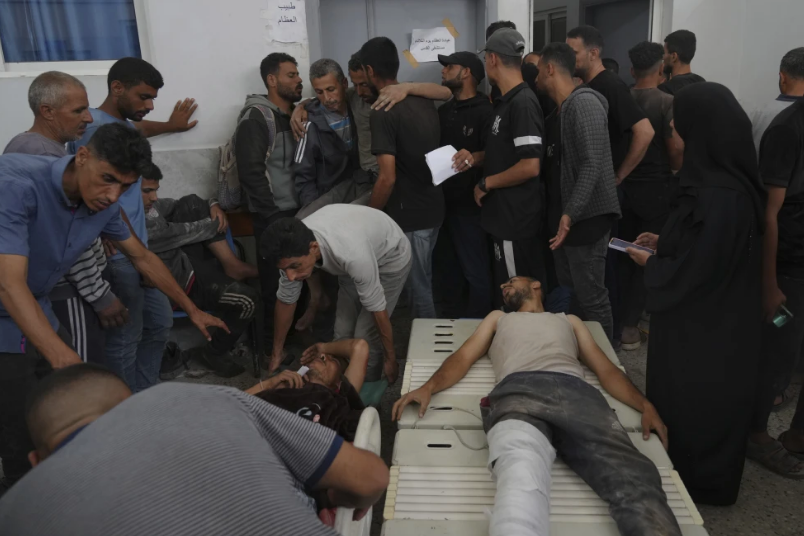Gaza health authorities report that the Israel-Hamas conflict has claimed the lives of more than 55,000 Palestinians.
- News Blend 360

- Jun 11, 2025
- 3 min read

BY NEWS BLEND 360
Updated 8:58 PM EDT, June 11, 2025
DEIR AL-BALAH, Gaza Strip (NB360) — The Palestinian death toll from the 20-month Israel-Hamas conflict has surpassed 55,000, according to the Gaza Health Ministry on Wednesday.
The ministry does not differentiate between civilians and fighters, but has reported that women and children constitute more than half of the fatalities.
This marks a grim milestone in the conflict that started with Hamas' incursion into southern Israel on October 7, 2023, with no end in sight. Israel maintains it targets only militants and attributes civilian casualties to Hamas, accusing the militants of using civilian areas for cover.

The ministry reports that 55,104 people have been killed and 127,394 injured since the war began. Many more are thought to be trapped under debris or in areas inaccessible to local medical teams.
The Health Ministry is part of Gaza’s Hamas-led government but is staffed by medical professionals who keep and release detailed records. Its casualty figures from past conflicts have generally matched those from independent experts, though Israel has questioned the ministry’s numbers.
Israeli forces have devastated large parts of Gaza, displaced approximately 90% of its residents, and recently converted more than half of the coastal region into a military buffer zone, including the now largely deserted southern city of Rafah.
A 2½-month blockade by Israel, following the end of a ceasefire with Hamas, heightened concerns of famine and was slightly relaxed in May. The introduction of a new aid system supported by Israel and the U.S. has been disrupted by disorder and violence, with the U.N. reporting difficulties in delivering food due to Israeli restrictions, a collapse of law and order, and extensive looting.
Israel accuses Hamas of diverting aid, but the U.N. and aid organizations refute claims of any systematic redirection of aid to militants.
Hamas has faced significant military setbacks, and Israel claims to have killed over 20,000 militants, though no evidence has been provided. The militants still hold 55 hostages — fewer than half are believed to be alive — and retain control over areas outside military zones despite encountering rare protests earlier this year.
The conflict began when Hamas-led militants killed about 1,200 people, mostly civilians, during the October 7 attack and took 251 hostages. More than half of the hostages have been freed through ceasefires or other agreements. Israeli forces have rescued eight and retrieved the remains of many others.
Israel’s military operation, one of the most lethal and destructive since World War II, has turned large urban areas into piles of debris. Hundreds of thousands of people are residing in overcrowded tent camps and abandoned schools, and the health system has been severely damaged, even as it deals with an influx of wounded from Israeli attacks.


Hamas has stated that it will only release the remaining hostages in exchange for more Palestinian prisoners, a lasting ceasefire, and a complete Israeli withdrawal. It has proposed handing over power to a politically independent Palestinian committee.
Israeli Prime Minister Benjamin Netanyahu has refused these terms, asserting that Israel will only consent to temporary ceasefires to enable the return of hostages. He has pledged to continue the war until all hostages are returned and Hamas is either defeated or disarmed and exiled.
Netanyahu claims Israel will maintain control over Gaza indefinitely and promote what he describes as the voluntary emigration of much of its population to other countries. The Palestinians and most of the international community oppose such plans, considering them forcible expulsion that could breach international law.


Comments